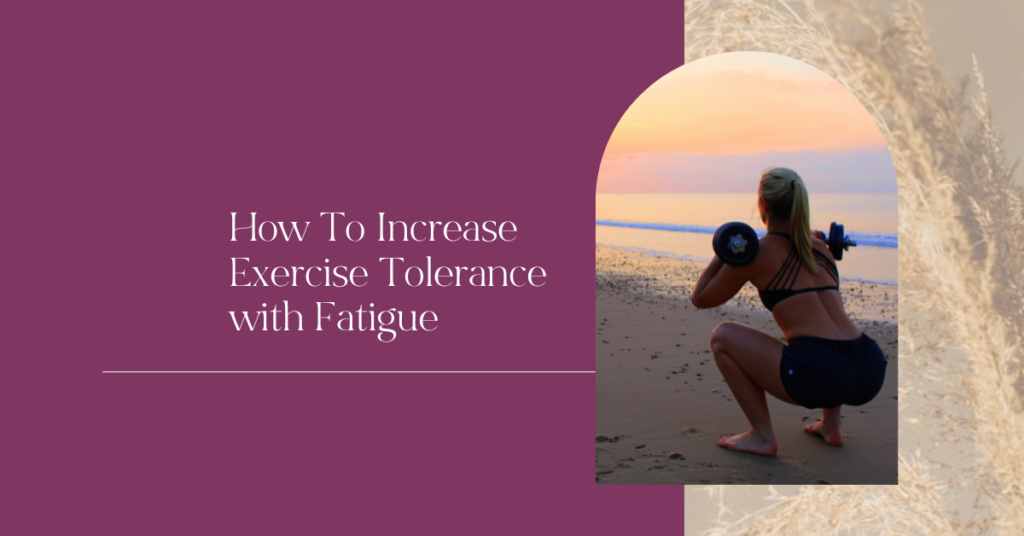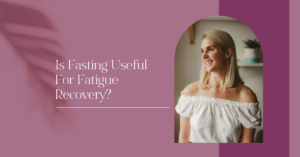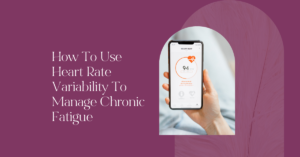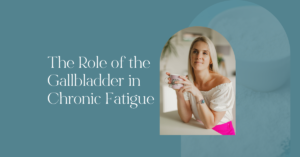Exercise and Chronic Fatigue can be a tricky combination. But, there are so many benefits to exercising it is most definitely worth taking the time to grow your strength and endurance capacity when your body is ready.
Maybe you know you can confidently walk for an hour or hit 7000-10 000 steps per day. You feel ready to take your exercise routine to the next level, but you aren’t sure where to start?
Part of fatigue recovery is deepening the connection you have with yourself and getting to know your nervous system. Both of which should strengthen your intuition and by now, you can probably trust yourself, and your body a little bit more. Let your intuition guide you and remember, it’s okay, especially if you are an over-coper, to do too much at times and to learn from your mistakes.
All the principles of my previous blog on “How to exercise if you have chronic fatigue” still apply but here are some more things you want to consider as you progress your exercise regime…
Stabililty Before Progression
Fatigue recovery is built on stabililty. This means that we want to have solid foundation before we strive for progress. The foundations that you’ll want to consider before you start challenging yourself with more exercise are:
- Stable daily and weekly routine which accounts for your other responsibilities relating to work life, home life and other aspects of your self care
- Stable sleep routine; you don’t need to sleep perfectly every night but you generally want to be sleeping well more often than not, waking and going to bed at the same time each day. For more tips on sleep, read this post.
- Stable blood sugar levels; before you start adding the stress of exercise you’ll want to make sure you aren’t hitting blood sugar highs and lows throughout the day. For more tips on this, read this post.
- Stable digestion and well functioning gut; I personally saw the greatest gains in exercise after I had stabilised chronic digestive symptoms. Digestive imbalances will drive systemic inflammation which may make it more difficult to recover from bouts of more strenuous exercise.
- Stable nervous system; you’ll want to have some tools for managing stress levels. It doesn’t mean you need to be calm all the time, but if you are feeling overwhelmed, shut down or highly activated more of the time, addressing this may take priority.
How do you want to be exercising and what are the stepping stones?
The first question to ask yourself is: What activities would I enjoy?
And secondly: Is this appropriate for me right now?
You might not be ready to do something that you want to do straight away but there may be other activities that could help you prepare for it.
For example, I wanted to start weight training but I knew my body wasn’t ready. So I started with some qigong to build some basic strength in my arms and legs which then progressed into some gentle vinyasa yoga. I then started a 20 minute body weight routine which I adapted slowly over time until I was weight training for 45 to 60 minutes.
You may need to see a physio or you may need a pilates routine to build your core strength. Don’t be afraid to outsource and get professional help.
What is your past experience with different disciplines e.g. what does your body remember?
In the beginning you may want to choose the path of least resistance and therefore it makes sense to try things that your body remembers and you may have easy access to. That being said, if you feel strongly that you want to try something new, listen to your intuition and give it a go!
How long have you been de-conditioned?
The longer you have been inactive, the more deconditioned your body will be, therefore, you may not be able to jump straight into what you could do before. It can be helpful to work with a physio to address any imbalances or take a gentle pilates class to build up your core strength before your progress to more challenging routines. I personally worked with Zoe from @activelyautoimmune and Desiree Carafo offers trauma informed pilates sessions online.
What other commitments do you have in your life?
When you first start to exercise again it is normal that you will feel more tired. Therefore, you will want to plan your activity levels around your life and healing journey.
If you are just about to do a gut protocol or a detox or if you have other demands on your time and energy due to work or family, take the time to consider if now is the best time to increase your activity levels? Sometimes just maintaining your current levels is a win in the face of additional life and health challenges.
As I began to introduce weight training into my routine I could feel quite tired for the rest of the day. Therefore I knew that I didn’t want to weight train on days when I had a busy client schedule. Therefore, I planned my workouts for the weekends or client-free days when I knew I could have more rest if needed and take the day on my terms.
What will your body tolerate?
Sometimes we may want to exercise in a certain way, but our body has other plans. In my fatigue recovery journey I could do a fasted hike for 1-2 hours and feel fine. But if I did more than 5 minutes of swimming or picked up a few weights, I would feel terrible. I was grateful that I could walk and hike and be outdoors but I really wanted to get back into yoga and weight training.
Eventually I discovered that I had mold illness and once I started a personalised detoxification protocol, my exercise tolerance increased. It took a further leap after a gut protocol where I passed several parasites.
The moral of the story here; your body is only going to let you do what it will let you do, and if that is less than what you want, maybe there are other parts of your recovery that need to be uncovered and addressed to increase your capacity further. If you need some help uncovering these blindspots, that is what my 1:1 Functional Medicine Fatigue Recovery Package is for.
Use Self Monitoring
If any of the self-monitoring principles I mentioned in my previous blog have worked well for you, you want to keep on using them.
As I started resistance training I tracked my heart rate more closely. When doing a lower body exercise, like a lunge, my heart rate could go as high as 150bpm. I worked at lowering my heart rate between sets by lying down and focussing on my breathing.
I would aim to get it into the high 60’s, low 70’s which is approximately 15-20bpm above my lowest night time resting heart rate before moving on to the next set. I found this may take 3-5 minutes for leg exercises and 1-2 minutes for upper body exercises.
As my body adapted to the resistance training I could recover faster and now I pay less attention to my heart rate and typically rest 1-2 minutes between sets, sometimes a little longer for lower body work. If my body feels more sensitive on any given day I may monitor my heart rate more closely and take more care to keep it regulated.
Notes: I use a Garmin VenuSQ for workout monitoring and an Oura Ring for overnight resting heart rate and heart rate variability (HRV). Watch out for a separate post on how I use Wearables in my fatigue recovery.
Take A Rest Days & Rest Weeks
As you introduce more intense activity, it’s unlikely that you’ll do this every day. As I introduced resistance training I found that twice a week worked well for me, with walking on the days inbetween and at least one proper rest day each week.
There are no hard and fast rules about rest days because, if you need to rest, you need to rest. That being said, you may want to have 1 day per week where you do less or take complete rest depending on where you are in your journey. Remember that other activities like work, socialising or studying take a lot of mental energy so an ideal rest day is one where both mind and body can rest.
When you are further along in your recovery you may want to consider a rest week where you reduce your training load to support recovery. If you are a woman with a menstrual cycle I quite like the idea of “deloading” around menstruation. If a rest week every 3 weeks seems too frequent then I would recommend every 6 to 8 weeks and to align this with your cycle if possible.
Supplement Support
A good diet is the foundation of fatigue recovery so, assuming you have that in the bag, the next thing you could consider is sports nutrition to support performance and recovery. I have a blog post coming up next week which goes into this in more detail, but generally speaking you may be looking at using supplements like Creatine, Branch Chain Amino Acids (BCAA), Ribose and antioxidants that support recovery like curcumin or glutathione.
Failure is Feedback
Exercise will have so many benefits and give you a big leg up in your health and energy over time. However, it is often challenging to find the right balance in the beginning. You won’t know until you try so be prepared to fail, learn from your mistakes and eventually you will find the right balance that works for you!

